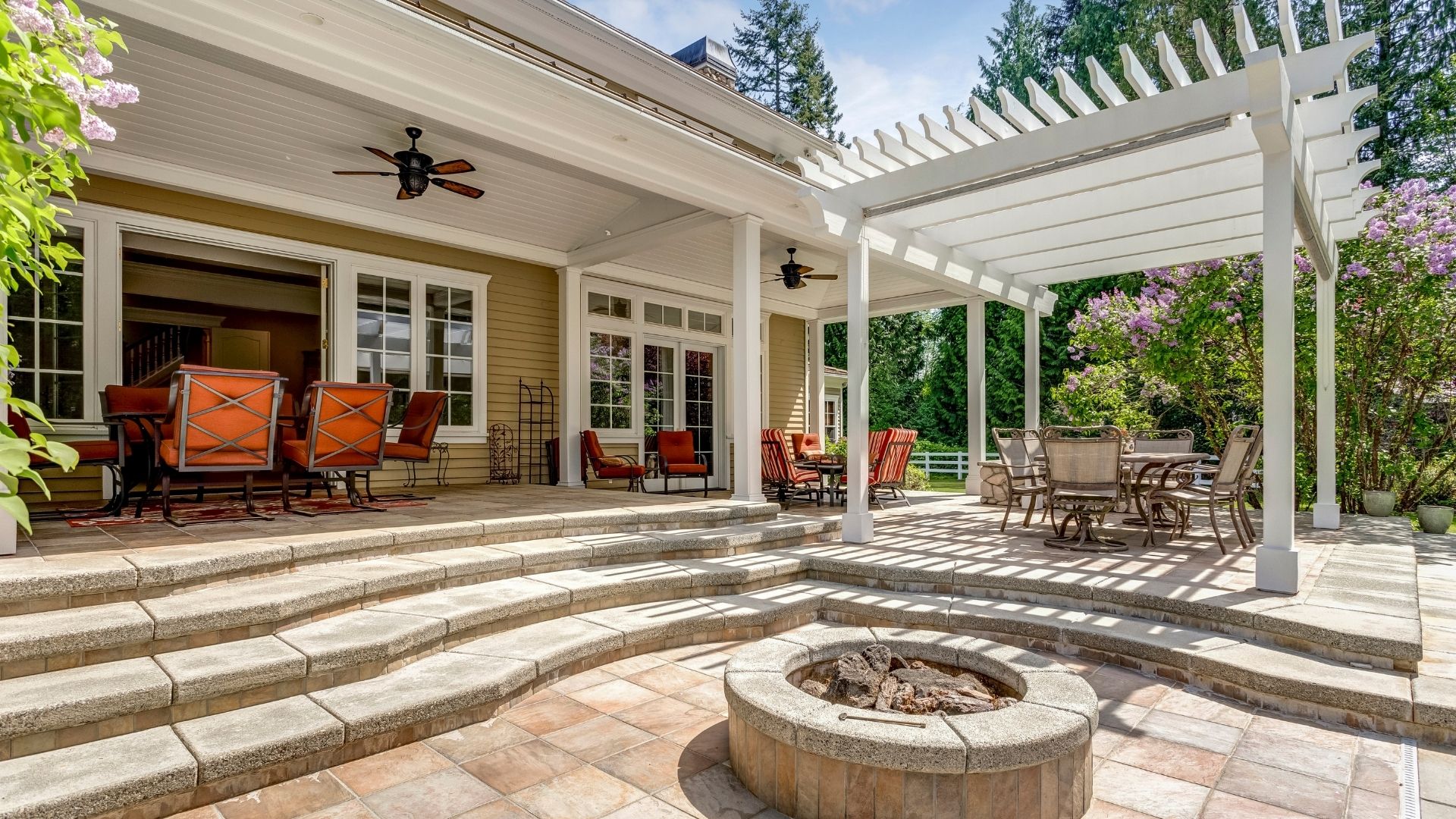Stained concrete has become a popular choice for interior floors. Many advantages of stained concrete flooring include: multiple color and finish options; reduction in allergens; low maintenance surfaces; and cost-effectiveness. You may have more questions about Concrete Craft’s staining techniques and services. Take a look at these Frequently Asked Questions about stained concrete to see if we can answer your questions.
WHY DO PEOPLE CHOOSE STAINED CONCRETE?
Stained concrete appeals to many people who want to achieve unique decorative effects for a reasonable cost. Stain can be used to create an infinite array of colors and special effects on both interior and exterior surfaces. Concrete stain does more than simply add color. Rather than produce a solid, opaque effect like paint or colored coatings, stains permeate the concrete to infuse it with rich, deep, translucent tones. Some stain verbiage will use adjectives such as “antiqued,” “variegated,” or “mottled” to describe the distinctive look. Even when treated with the same staining product in the same shade, no two concrete floors or walls will look alike due to factors such as the composition and age of the concrete and surface porosity.
CAN ALL CONCRETE BE STAINED?
Both acid and water-based stains can be applied to new or old and plain or integrally-colored concrete. They can also be used both indoors and out, on everything from concrete floors to pool decks, patios and driveways.
The most important consideration is the condition of the surface. If the concrete is covered by grime, glues, paint, coatings, curing membranes or sealers that inhibit the stain from soaking in, the stain won’t be able to penetrate and achieve full color development. This is when it may be necessary to install a Concrete Craft Micro-Topping to recreate the surface in order to accept the stain.
WHAT ARE MY COLOR OPTIONS WITH STAINED CONCRETE?
Concrete Craft offers several vibrant stain colors to choose from. The options are only limited by your imagination.
HOW DO I CHOOSE THE RIGHT STAIN COLOR?
Color choice is often dictated by personal preference or by a desire to match or complement an existing color scheme, such as staining a concrete floor to mirror the same tones as a paint color on a wall, or the stone on a fireplace. Because stain color is permanent, many homeowners opt for neutral tones, such as golden-tans, browns, grays and greens.
WHAT SPECIAL EFFECTS ARE POSSIBLE WITH STAINED CONCRETE?
Depending on the color and application techniques used, stained concrete can be applied to achieve almost any look you desire; it can provide a lot of color/texture variation, have a consistent monochromatic design or anything in between.
WHAT ARE THE DIFFERENCES BETWEEN ACID STAINS AND WATER-BASED STAINS?
Acid-based concrete stains are made up of inorganic metallic salts dissolved in an acid and water solution. They penetrate into the surface and react chemically with the concrete to form a permanent bond. The color they impart is translucent rather than opaque, resulting in deep, rich tones and attractive marbling effects.
Non-reactive water-based stains (typically a blend of acrylic polymers and pigments) fill the pores of the concrete surface to produce a colored film or coating to give a vibrant translucent finish. The key difference is that no chemical reaction takes place, so the color is more consistent. These products are also low in VOCs (volatile organic compounds) and safer to apply because they are free of solvents and acids.
HOW MUCH DOES STAINED CONCRETE COST?
The cost of staining will vary considerably depending on the complexity of the stain application, surface prep requirements, and the size of the project.
DOES STAINED CONCRETE FADE?
Because stains penetrate into the concrete surface, their color is durable and long-lasting. When applied to properly prepared concrete, the color will not fade, chip, or peel away
HOW DO I MAINTAIN STAINED CONCRETE?
Although concrete stain is permanent and won’t flake off like paint, it penetrates only the top layer of the concrete surface and will eventually wear away as the surface is worn by traffic or weather exposure. To prolong stain life, you should protect exterior stained concrete surfaces with a clear sealer and interior floors with a good floor wax. To keep your stained concrete looking its best, you will also need to clean it periodically by dry dust mopping and occasional wet mopping with a neutral-pH cleaner.


